The processional refers to the part of the ceremony wherein the wedding party walks down the aisle. This is often described as one of the most memorable and emotional aspects of a wedding, especially once the groom sees the bride in her wedding dress for the first time.
How long does it take to walk down the aisle? In general, all members of the wedding party should take less than five minutes to walk down the aisle. The bride herself takes up around 45 seconds of that time.
There are seven factors that influence the length of the processional: the size of the wedding party, order of the entrance, length of the aisle, length of the processional music, the wedding party’s natural pace, the bride’s dress, and other personal conditions.
These factors are explained in more detail below. Other things to keep in mind are also enumerated, such as the traditional order of the processional and tips for managing one’s anxiety.
Factors that Influence How Long the Processional Will Be
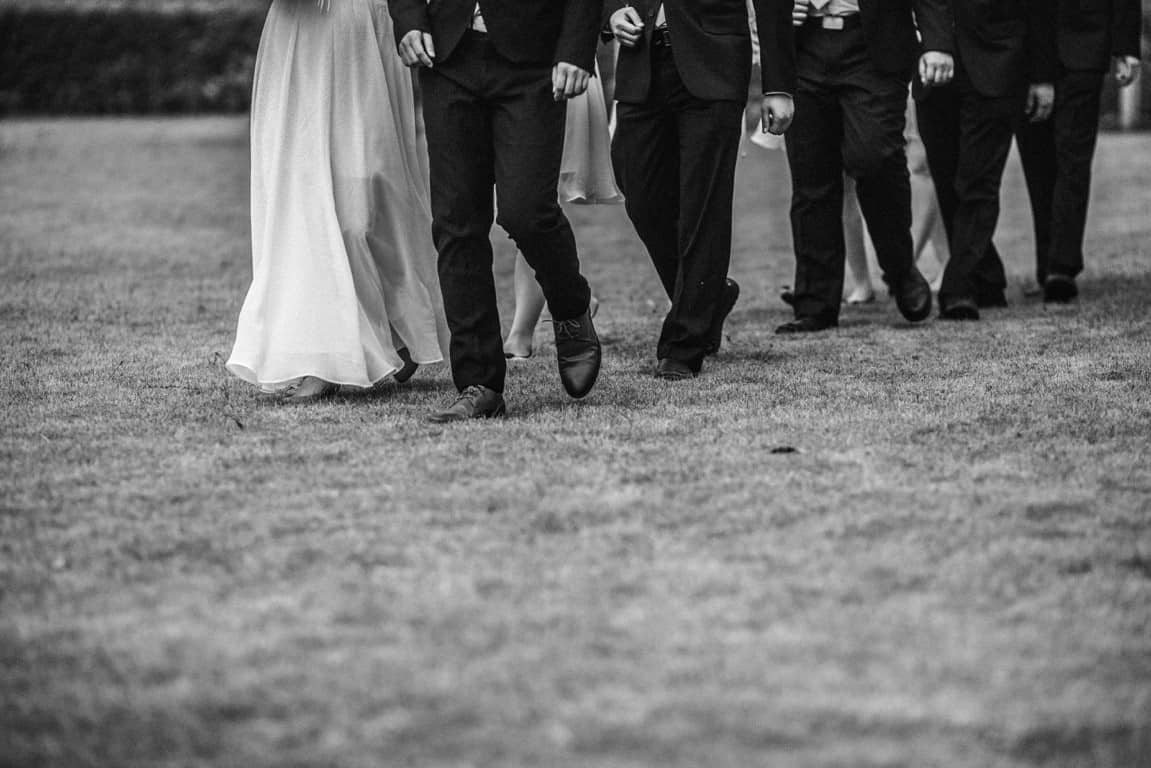
1. Size and Members of the Wedding Party
Besides the bride and groom themselves, a wedding party usually consists of the following:
- Grandparents
- Parents of the groom
- Parents of the bride
- Groomsmen
- Bridesmaids
- Best man
- Maid or matron of honor
- Ring bearer
- Flower girl
Your grandparents may need a little more time to walk down the aisle, especially if they need walking assistance such as an usher or cane. Similarly, the ring bearer and flower girl, who are typically children, may have varying paces; some kids make it straight to the front, while others may get quite distracted along the way.
Furthermore, the length of the processional will also be influenced by the number of groomsmen and bridesmaids present. For example, five pairs of groomsmen and bridesmaids will take less time to walk down the aisle than two pairs.
2. Order of the Entrance
Deciding if people walk down the aisle individually, by pair, or in groups will influence the length of the processional. You and your partner should figure out who comes out with whom, and the order in which they go.
For example, you may want to have each parent and grandparent walk individually, while the bridesmaids and groomsmen walk in pairs. You may also have the parents enter with the corresponding grandparents.
Who gets to walk the bride down the aisle also falls under this factor. This role is traditionally given to the father; however, this is not always the case. Other brides may even have two or more escorts who accompany her at different segments of the aisle. Regardless of who ushers the bride, they will ultimately affect the length of the processional.
3. Length of the Aisle
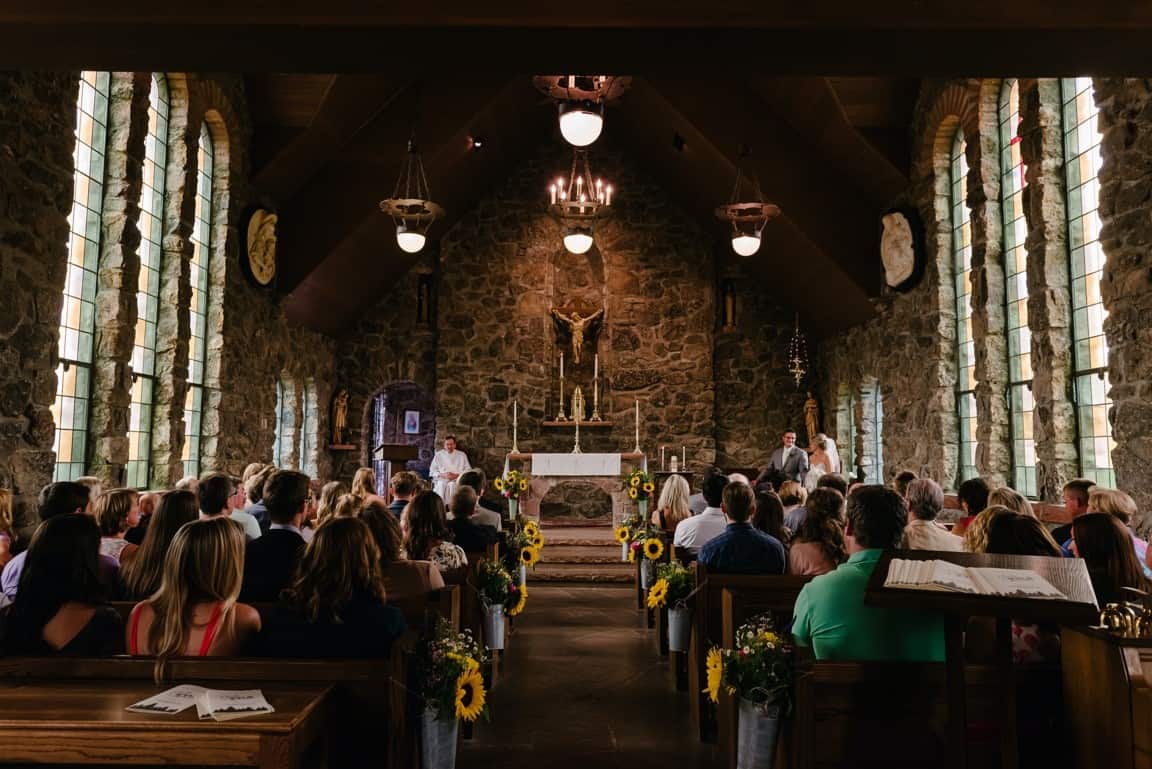
Simply put, the longer the aisle, the longer the processional will be. This factor completely depends on your venue; Catholic weddings held in a church may have a longer aisle than an outdoor beach wedding. However, the only way to know for sure is to ask the staff from the venue for the exact dimensions of the aisle.
4. Length and Speed of the Song
Music is an essential aspect of any wedding; it helps shape the ambiance in the venue and makes the ceremony more magical. The bride typically has control of this factor, as she gets to pick a song that carries sentimental significance. Whether it be a classic by Frank Sinatra or a modern pop song, its composition will affect not only the length of the processional but also the order of the entrance.
5. Natural Pace and Gait
Everyone’s manner of walking is a little different from each other; some people naturally walk faster, while others like taking their time. It is best to observe your wedding party a few weeks leading up to the wedding so you can plan around their pace and gait.
6. The Bride’s Dress
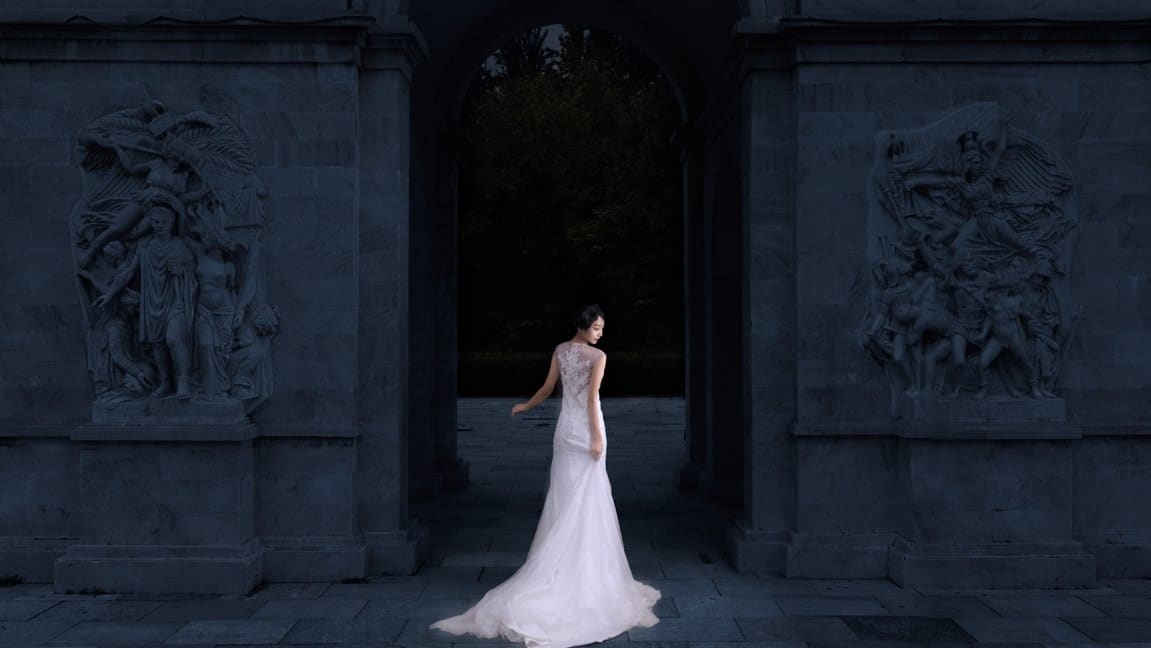
The highlight of the processional is the bride’s entrance. Besides her stunning beauty, guests will most likely stare at her wedding dress as well. Aspects of her dress, such as its length, weight, and overall intricacy, will influence her walking pace.
7. Personal Conditions
As stated above, people have different natural walking paces. Some may have a gait affected by old age or physical disability. If a member of your wedding party or you yourself have a condition that slows you down, do not make them rush to get to their places. Instead, accommodate and support them by giving them an usher or lengthening the entire processional.
Other Things to Keep in Mind
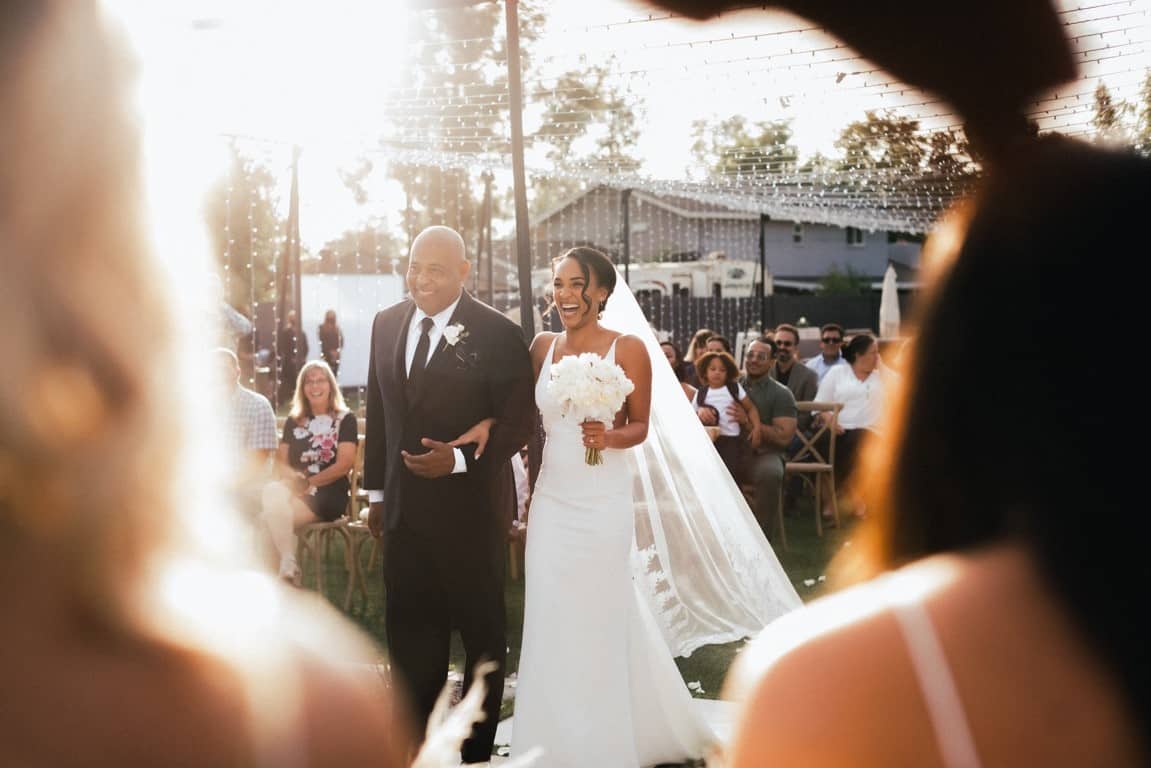
The Traditional Processional Order
In a typical Christian wedding, the order may go as follows:
- The officiant
- The bride’s mother
- The groom
- The best man
- The groomsmen
- The bridesmaids
- The maid of honor
- The flower girl
- The ring bearer
- The bride, accompanied by her father
While this is the common progression, you do not have to stick to it. You may want someone else to accompany you as you walk down the aisle. You may also want to tell the guests to remain seated as you walk. Moreover, you may want to pair up the groomsmen and bridesmaids and have the best man and maid of honor go after them.
Other types of wedding ceremonies may have a different traditional processional order. For instance, a Jewish wedding’s processional may have this order:
- The Rabbi or Cantor
- The bride’s grandparents
- The groom’s grandparents
- The groomsmen
- The best man
- The groom, accompanied by his parents
- The bridesmaids
- The maid of honor
- The ring bearer
- The flower girl
- The bride, accompanied by her parents
Arrange for a Short Rehearsal in the Venue
The only way to determine how much time it will take to walk down the aisle with certainty is to rehearse the processional. Check with your venue if you can have one or two hours to finalize and rehearse the details of the processional. Doing so will help you nail the right order and timing.
As you rehearse, be mindful of your pace. You may want to experiment with different walking speeds; however, do not rush yourself. Ultimately, go at a speed at which you feel comfortable.
Tips to Manage Your Anxiety
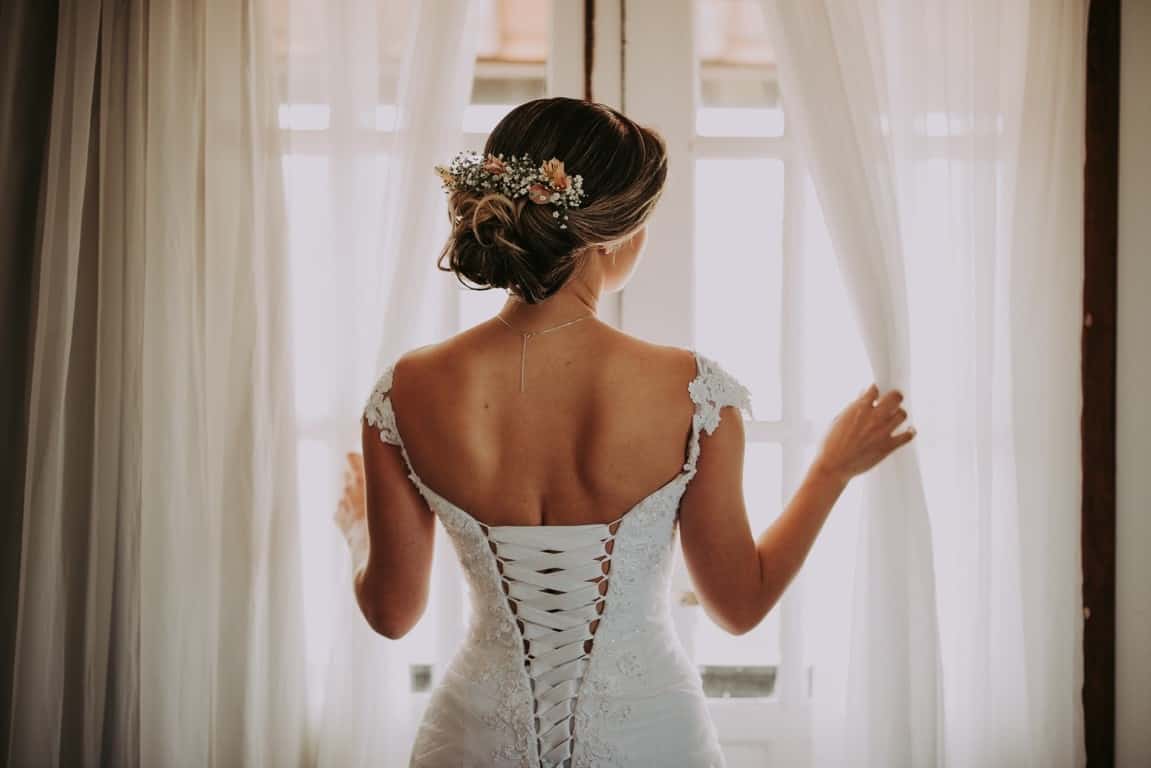
First and foremost, keep in mind that being nervous is a normal response to such a major and life-changing event. Additionally, the stress of planning your wedding may reach its peak on the day of the wedding itself, when so many things could go wrong. Regardless of whether you have a day-of coordinator or not, it is important to stay in the moment and repeat to yourself: Everything will be fine.
- Spend a few minutes by yourself. Find a place where you feel at peace, close your eyes, and meditate. Think about the love of your life and how excited you are to solemnize your commitment.
- Have someone you trust by your side. This duty falls under the maid of honor; she is responsible for keeping you grounded and calming you down. If necessary, confide in her about your emotions. Talking about what you feel usually helps to rectify or minimize negative thoughts and feelings.
- Just breathe. When you feel like it is starting to get overwhelming, take a deep breath, hold it for a few seconds, then exhale slowly. Repeat this until your heartbeat starts to settle down.